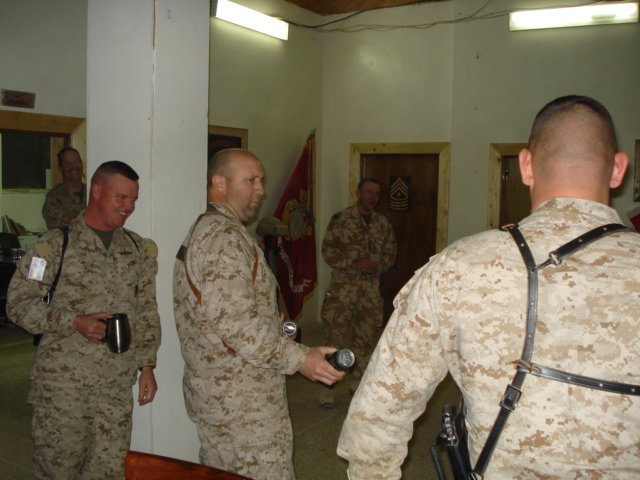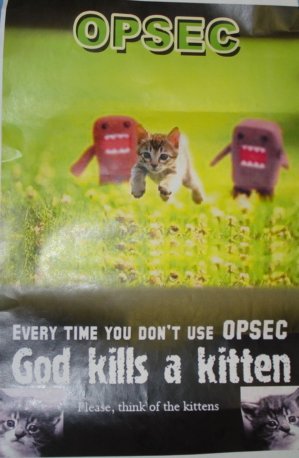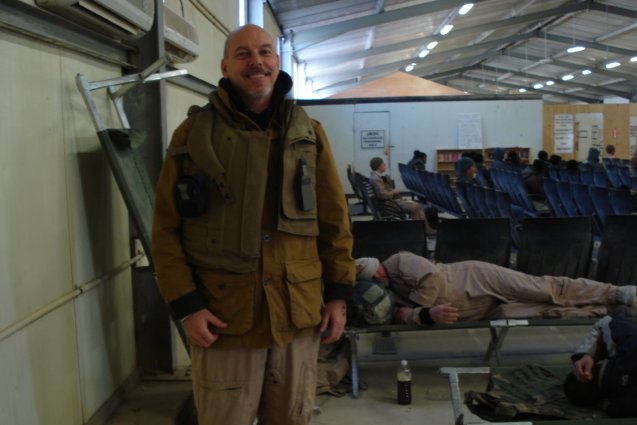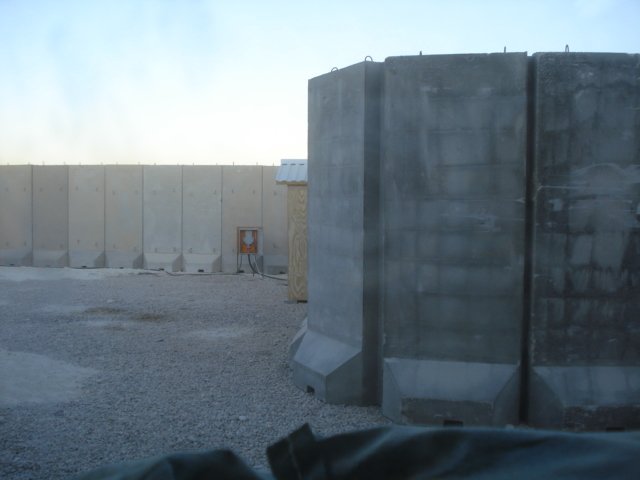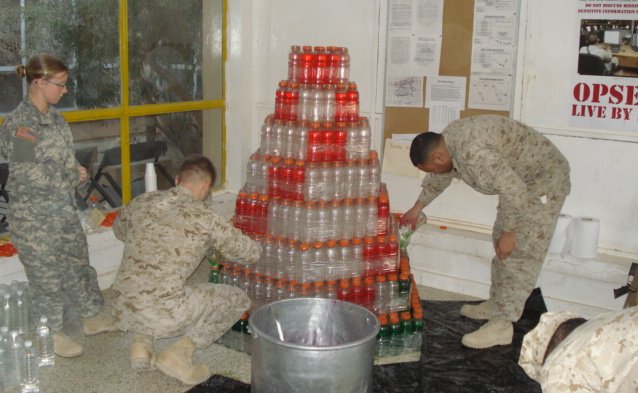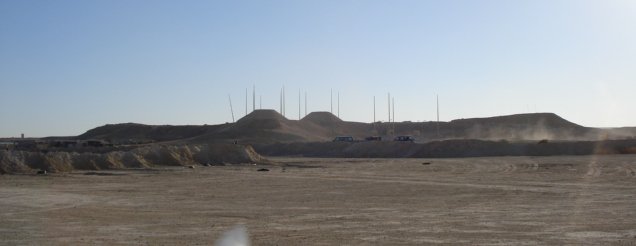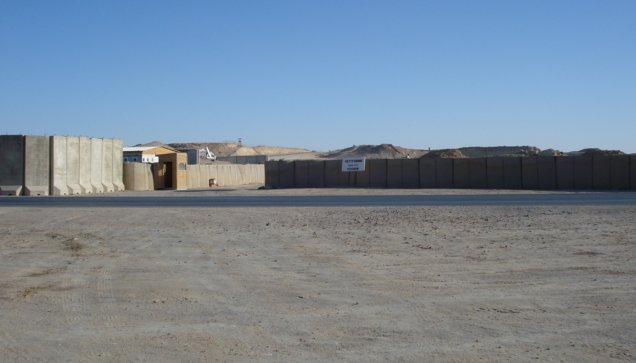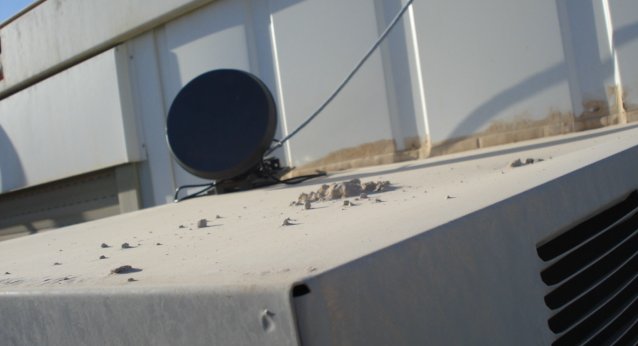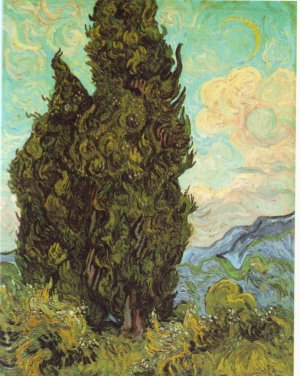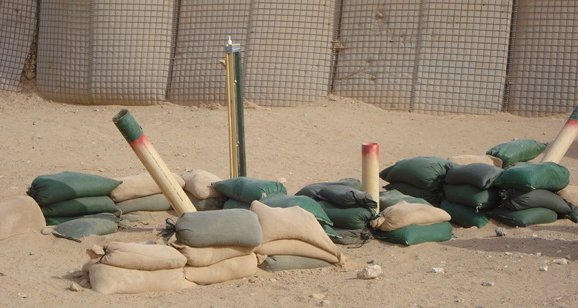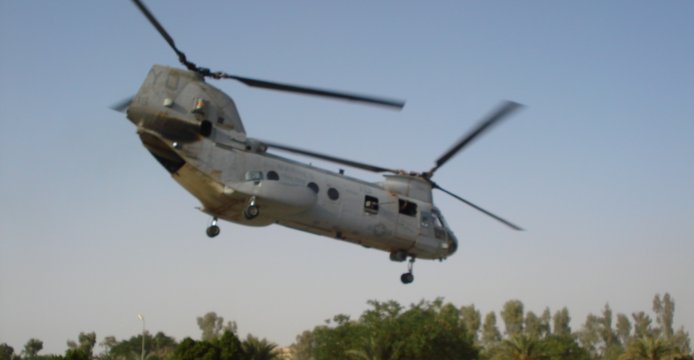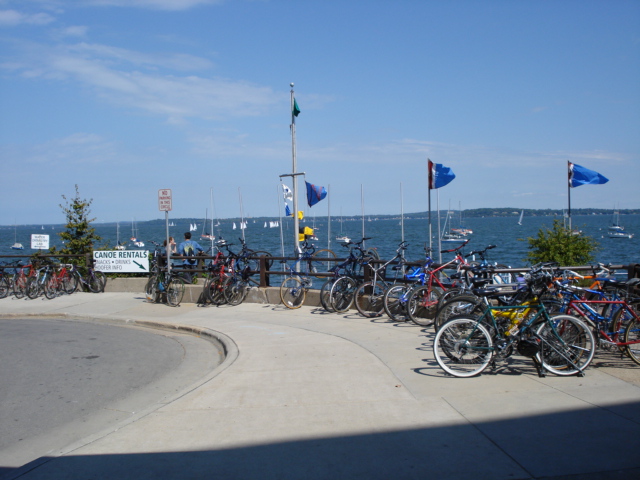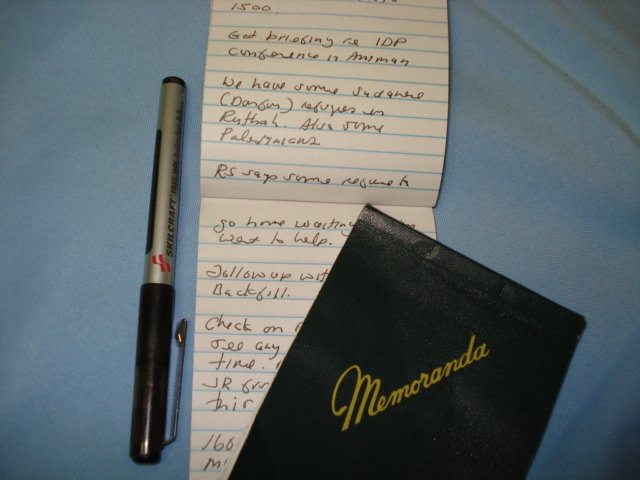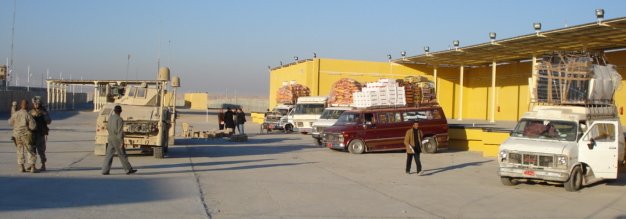
I was back at the POE at Husaybah for the first time since I attended the opening about a month and half ago. Last time I was here there no commerce flowed through the POE. There is still not much. The trade coming through consisted of bongo trucks (short flat beds) and vans piled so full and high with produce and goods that their bottoms scrap against every high point in the pavement and a particularly high speed bump could present an impassible barrier.
The big rigs, eighteen wheelers, are still not coming through. We thought it might be for security reasons, but the we were assured that the guys at the POE were ready, willing and able to handle them. For now, the Syrian side seems to be holding up the big truck transit. I could not find out the ostensible reason but it seems to be a minor or a technical issue rather than a policy statement. As of now, it doesn’t make much of a difference. There was not a line of trucks waiting to come over. The POE on both sides is small and the roads narrow, which leads to another POE problem.
The POE in Husaybah is currently like a roach motel for big trucks: they can check in, but they cannot check out. The roads leading from the POE to the rest of Iraq are too narrow. Big trucks can drive along them, but if they do nothing else can move in the other direction. The solution to this problem seems simple: widen the road or – preferably – build another as a bypass for the heavy trucks. Of course, the simple solution is not the easy solution because it smacks of effort and costs money, but this will have to happen. The expedient solution, the one that I predict in the short and medium term, is simply for the trucks to force other traffic to drive across the adjacent desert. The desert is flat and has a consistency a lot like pavement anyway. I suppose trial and error will even help identify the best routes for the roads, whenever they are actually built.
The POE manager also complained that he did not have enough room to park vehicles waiting for inspection or secure vehicles that have been impounded or just need to be stored for whatever reason. I am no expert, but this is also a problem I just cannot understand. Much of western Iraq looks for all the world like a giant parking lot. In the short term, all anybody needs to do is put up a fence around a suitable area of it and call it an impound lot. If you didn’t want a fence, an earth berm would probably do the job, maybe even do the job better, since it would be harder to break down and drive through than a chain link fence.
My general impression is that the POE is just too small for the traffic you could reasonably expect to be coming through when peace and prosperity takes firm root in Iraq. Fortunately, along this stretch of the Syrian border topography is very forgiving for procrastinating planners & prospective pavers. Nature has provided acres of flat, hard packed surfaces with few obstacles to block anything rolling across. There are no significant obstacles to making this POE work besides human inertia, lethargy, perfidiousness and plain cussedness. This can be overcome.
The guys currently stifled by the lack of parking and roads across a landscape that is essentially one giant parking lot are the same ones who devise elegant and imaginative solutions to much tougher questions of distribution of the goods and services they want and need. If people want to make this work, it will work.


